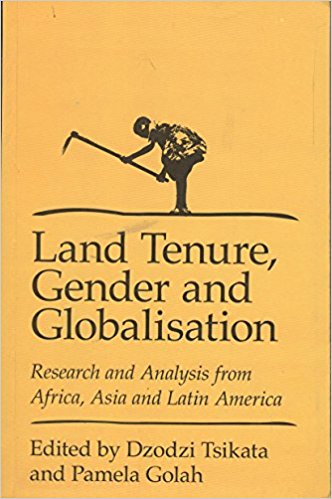Globalization has presented itself as unavoidable, a universal truth supposedlyabove, all the disputes between groups with differentiated power. (Porro: 286)
Superbly written and edited, Land Tenure, Gender and Globalization offers detailedglimpses into the heterogeneous nature of the local, as it confronts and responds to the global, via case studies from Ghana (Mariama Awumbila and Dzodzi Tsikata), Cameroon (Joyce B.M. Endeley), Vietnam (Steffanie Scott et al) and the Amazonian forests of Bolivia, Peru and Brazil (Noemi Miyasaka Porro et al). These distinct community and gendered experiences of land and resource tenures shifting with globalization are impeccably interwoven by introductory and concluding chapters.
Whereas Tsikata introduces the book with the main issues that emerge from the studies, Mackenzie situates these and cases from other regions in the concepts of global, local, land and gender; Allison Goebel outlines the various methods of actionbased research on these themes with reference to the cases; and Porro concludes the book with implications for policy and political mobilization towards social change. Together these chapters offer deep and profound insights that are complemented by the rich details provided in the casestudies. In my view, the main lesson of the book: alternatives must be centered on the agency of people at the local level.

